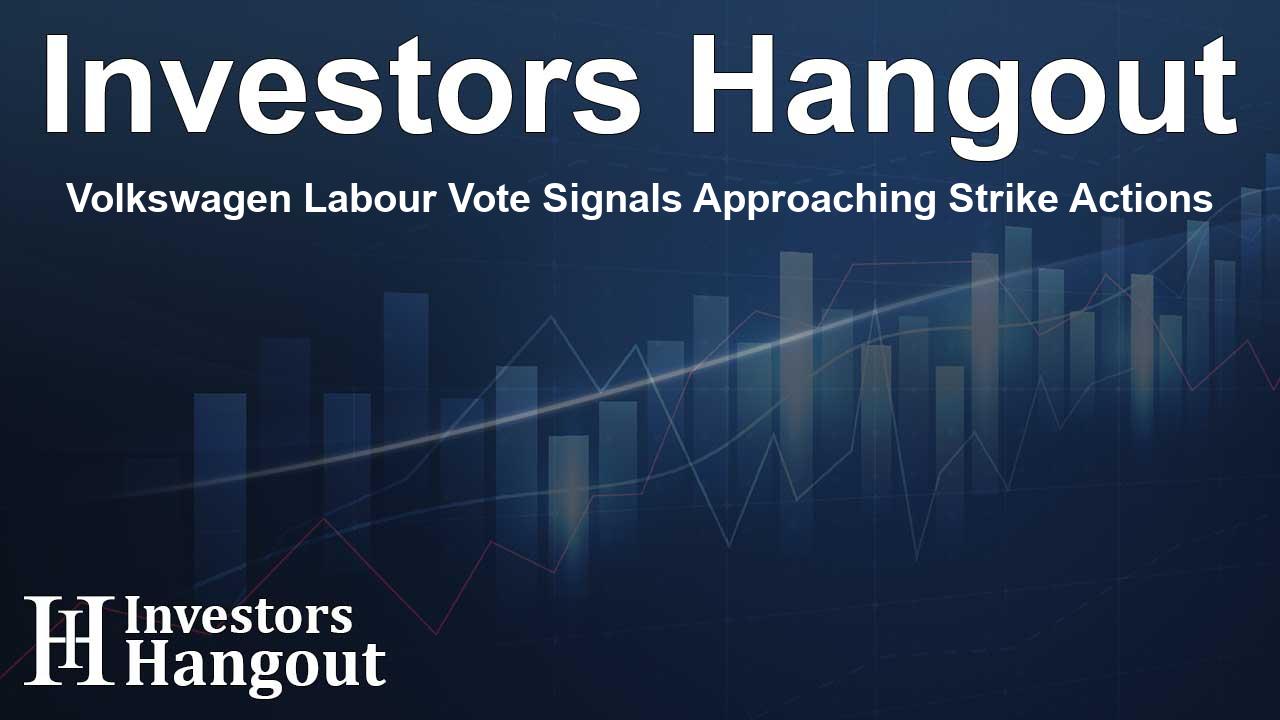Volkswagen Labour Vote Signals Approaching Strike Actions

Volkswagen Labour Representatives Prepare for Strike Actions
Volkswagen's labour representatives are gearing up for limited strikes starting in early December. This decision comes after a significant meeting with the IG Metall trade union, marking a pivotal moment in negotiations.
Details of the Vote
In a decisive move, the IG Metall wage commission convened at Volkswagen's headquarters in Wolfsburg. After extensive discussions during a third collective bargaining session, the commission unanimously agreed to initiate warning strikes early next month. This demonstrates the union's strengthening resolve amidst ongoing negotiations with the automotive giant.
Significance of the Strike Vote
The vote for warning strikes serves as a warning signal to Volkswagen, emphasizing the urgency of addressing workers' concerns. The industrial action is set to increase pressure on the company as employees express their demands and expectations regarding wages and working conditions.
Impact on Volkswagen and Employees
As these warning strikes approach, it's essential to consider the potential ramifications for Volkswagen and its workforce. Strikes can disrupt production schedules and impact overall operations, pushing the company to reconsider its stance in ongoing negotiations.
Employee Sentiment
The decision to strike reflects a growing sentiment among employees who feel that their concerns are not being adequately addressed. Workers are seeking improvements in their working conditions and compensation, striving for a balance that reflects their contributions to the company.
Future Considerations
With limited strikes scheduled, both Volkswagen and its workforce must navigate the implications of these actions. The upcoming weeks will be crucial as the company responds to the strike vote and strives to reach a compromise that satisfies both parties.
Conclusion
This developing situation at Volkswagen highlights the broader trends within the automotive industry, where labour relations are becoming increasingly significant. As employees express their demands through union representation, the outcome of these negotiations will shape the future of work within the company.
Frequently Asked Questions
What led to the strike vote at Volkswagen?
The strike vote followed a third collective bargaining session where workers expressed dissatisfaction with ongoing negotiations.
When are the strikes expected to begin?
The limited strikes are set to commence in early December as decided by the IG Metall wage commission.
What are the main concerns of the workers?
Workers are primarily concerned with wages and working conditions, reflecting their need for a fair and conducive work environment.
How might these strikes affect Volkswagen's operations?
The strikes could disrupt production schedules and impact the company's overall operations, prompting a need for urgent negotiations.
What is IG Metall's role in this situation?
IG Metall is the trade union representing the workers, advocating for their rights and negotiating on their behalf with Volkswagen's management.
About Investors Hangout
Investors Hangout is a leading online stock forum for financial discussion and learning, offering a wide range of free tools and resources. It draws in traders of all levels, who exchange market knowledge, investigate trading tactics, and keep an eye on industry developments in real time. Featuring financial articles, stock message boards, quotes, charts, company profiles, and live news updates. Through cooperative learning and a wealth of informational resources, it helps users from novices creating their first portfolios to experts honing their techniques. Join Investors Hangout today: https://investorshangout.com/
Disclaimer: The content of this article is solely for general informational purposes only; it does not represent legal, financial, or investment advice. Investors Hangout does not offer financial advice; the author is not a licensed financial advisor. Consult a qualified advisor before making any financial or investment decisions based on this article. The author's interpretation of publicly available data shapes the opinions presented here; as a result, they should not be taken as advice to purchase, sell, or hold any securities mentioned or any other investments. The author does not guarantee the accuracy, completeness, or timeliness of any material, providing it "as is." Information and market conditions may change; past performance is not indicative of future outcomes. If any of the material offered here is inaccurate, please contact us for corrections.